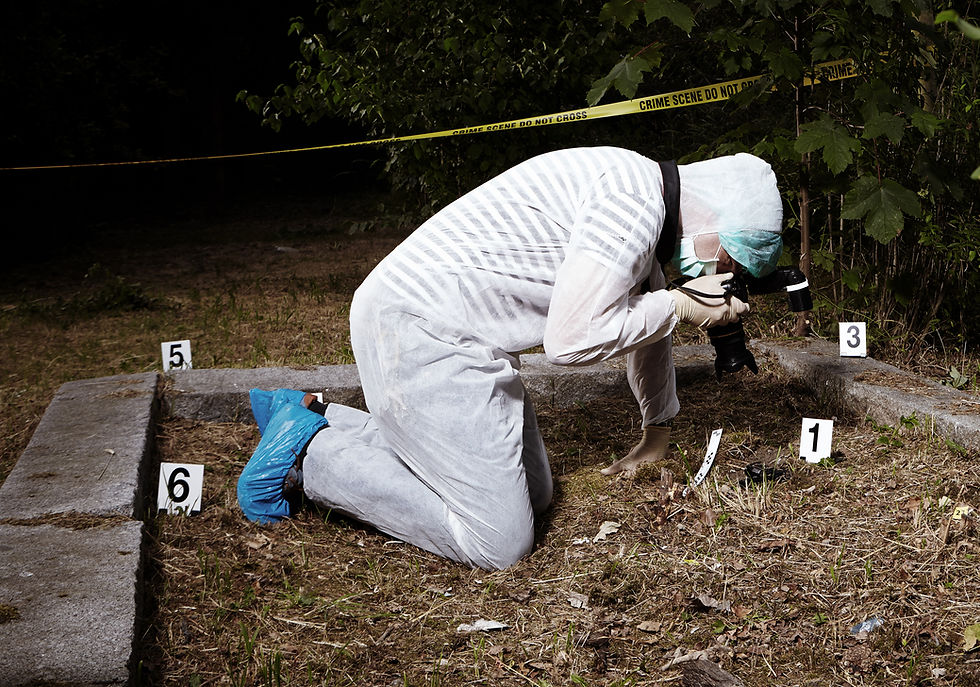There is no evidence without an interview.

During any investigation, evidence does not simply exist; it is unearthed and given meaning through the investigative interview. I recently posed to the LinkedIn community — "Can there truly be evidence without the foundational act of questioning that an investigative interview represents?" — helps us to consider the indispensable role of the interview in bringing significance to what we collect, observe, and analyze. Evidence, after all, is not merely an object of an occurrence but a piece of a larger story waiting to be better understood through an investigative interview.
Within an investigation, evidence serves as the foundation upon which cases are built. Evidence also guides investigators like a compass. However, its true significance only comes to light during interviews. A fingerprint, a strand of hair or a mysterious text message may seem insignificant on their own, but when contextualized through an interview, they can gain more meaning. Additionally, evidence can also be ruled out as probative or shown not to have meaning to the case or question at hand.
In any investigation there is a constant interaction between the emerging story and the available evidence. Interviews go beyond mere collection of testimonies; they transform static information into dynamic insights, overlooked details into central pieces of puzzle and seemingly ordinary things into crucial components. As investigators, we weave together human recollections, digital trails and physical traces to create a coherent picture through the interview. It is essential that we view our evidence through this lens. Not as isolated facts but as interconnected dots that reveal the larger truth we seek.
Giving Context to Evidence Through Interviews
Interviews play a crucial role in providing context to evidence. Without a narrative, even the most compelling physical evidence can lack significance. For instance, imagine an investigator discovering a cell phone at a crime scene. On its own, it's just an object; but through interviewing individuals connected to it, it could potentially indicate a suspect who frequents a specific place. On the other hand, it could also be misleading and unrelated to the crime itself. Through interviews, investigators can establish timelines, uncover relationships and link locations with activities. Each interview adds layers of context that transform physical objects into verified facts that are essential for building the case.
Interpreting Evidence Through Interviews
The meaning behind evidence is often not immediately clear and requires interpretive clarity that interviews can provide. Imagine having surveillance footage that captures someone at a specific time and place. However, without understanding their intentions or roles, their presence could remain uncertain. That's where interviews come in to shed light on the motives behind their actions, helping investigators differentiate between mere coincidence and premeditation. By asking the right questions, investigators can give accurate meaning to what might otherwise be ambiguous evidence, thereby defining its significance within the investigation.
Enhancing the Significance of Evidence through Interviews
Not all evidence carries equal weight during an investigation. Interviews have the power to significantly elevate the importance of a particular piece of evidence. A casual remark made during an interview could unlock the significance of previously overlooked evidence, propelling it to center stage in the investigation. Conversely, a seemingly crucial piece of evidence may lose its prominence if interviews reveal it to be commonplace or unrelated to the core investigation.
Interviews as a Channel for Confirming Evidence
In correlating individuals with evidence, interviews play a vital role. Statements made during these interviews can either directly link someone to the evidence or establish a reasonable explanation for any connection. For example, if an individual's DNA is found at a crime scene, an interview would be necessary to determine whether there is a legitimate reason for this presence or if it incriminates them in any way.
Interviews can provide valuable insights into a situation where an individual was present at the scene, but their presence may not be related to the crime itself. This helps establish them as a person of interest rather than an immediate suspect.
The Importance of Interviews in Evaluating Evidence
On the other hand, interviews have the power to exclude individuals from an investigation as well. By interviewing other witnesses and confirming alibis, investigators can establish that someone who may have had their fingerprints at a crimes scene was actually in a different location when the crime took place or the persons belongs to the location in question. This changes the significance of the fingerprints and eliminates them as evidence connecting to that specific suspect, effectively ruling them out as a potential perpetrator.
In summary, to say that there is no evidence without an interview may not be literally true. Interviews do give evidence meaning, context, power, and truth. Interviews strengthen evidence or reveal the truth; it confines guilty persons and sets the innocent free. There is no better evidence when it is accompanied by strong interviews and quality investigations.
Comments